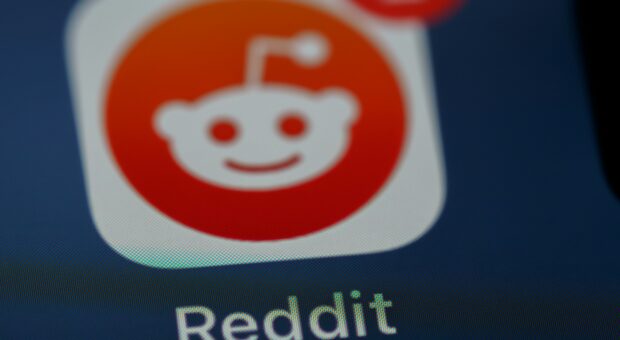
Last Wednesday everyone’s favorite Facebook villain, Mark Zuckerberg, announced a new focus for the company – privacy. The announcement comes on the heels of Cambridge Analytica and #DeleteFacebook, among other highly publicized data scandals, making it confusing, if not ironic, to many of Facebook’s critics.
But while fans and haters alike remain skeptical of the shift, there’s a whole other swath of Facebook users that are now left hanging – marketers.
What does a world without the newsfeed look like? And how do advertisers fit in?
Don’t Panic and Be Patient
Before jumping to disastrous conclusions, advertisers would be wise to sit tight and simply observe. Despite apocalyptic predictions about the fate of Facebook following Cambridge Analytica, the platform actually grew its user base, saw a year-over-year increase in usage, and enjoyed a full recovery of its share price. Scandal? What scandal?
If there are two things we know to be true about Facebook the first is that it is incredibly resilient (even a documented privacy breach couldn’t keep users from their newsfeeds) and the second is that it depends on advertisers to exist. While the platform may be evolving to focus more on privacy, it’s unlikely that it will happen overnight, and even more unlikely that advertisers will be completely left out of that evolution. The company needs revenue, after all.
Zuckerberg himself admitted that public social networks are unlikely to disappear, and that this new privacy-centric offering will be designed to coexist, rather than replace traditional social media platforms.
Public social networks will continue to be very important in people’s lives — for connecting with everyone you know, discovering new people, ideas and content, and giving people a voice more broadly. People find these valuable every day, and there are still a lot of useful services to build on top of them. But now, with all the ways people also want to interact privately, there’s also an opportunity to build a simpler platform that’s focused on privacy first.
Diversify Your Strategy
Although panic or wholesale strategy shifts are unlikely to reap any benefits, forward-thinking marketers should begin to consider where they fit in a messaging-driven social-sphere.
Today we already see that private messaging, ephemeral stories, and small groups are by far the fastest growing areas of online communication.
Facebook or no Facebook, many successful brands have already initiated a shift to community-driven marketing, spaces where brand advocates can converse, encourage, and commiserate with each other privately. These brand-hosted, private communities have a smaller reach than traditional newsfeed ads or broadcast commercials, but instead rely on influencers and advocacy, brand experiences, increased engagement and deeper connections with consumers to thrive. While growth tends to be slower, the audiences are highly qualified and much more engaged than in other forms of outreach.
Another important diversification strategy is email. Focusing on email lists today will likely pay dividends in the era of private messaging, where owned lists are key. Investing in AI and chatbot technology is also likely to pay off, as users come to expect more personalized and instantaneous interaction from brands.
What to Expect Down the Road
While nobody knows exactly how Facebook will evolve (Zuck himself admitted “there’s a lot to do here, and we’re committed to working openly and consulting with experts across society as we develop this”) his most recent announcement focused on three distinct themes:
- Private messaging
- Data impermanence
- Cross-channel commerce
Private messaging is already a core tenant within the Facebook empire, specifically through their WhatsApp platform, which has end-to-end encryption built-in. It seems likely that Facebook will embrace some form of this technology on their other platforms as well, allowing users to send encrypted messages that only the sender and recipient can see. They also seem interested in integrating all of their platforms from a messaging perspective so that a WhatsApp user could message a Facebook user who could then message an Instagram user, all without switching platforms. While it’s true that this could exclude advertisers from being able to utilize messaging data for targeting, it is also likely to add some additional opportunities for more personalized marketing within the private messaging space.
Another topic that Zuckerberg focused on in his announcement was impermanence – the idea that messages, photos and data could be time-limited. This already exists in the form of Facebook and Instagram stories, which live for only 24 hours, but Zuckerberg proposes to expand this offering to a wider range of data, giving users more control over what others can see and for how long. This is unlikely to affect advertisers much and may even serve to keep targeting data fresh and up to date.
Last, but certainly not least, Zuckerberg mentions integrating commerce functionality directly into the social networks and enabling use across platforms. Speculation about a Facebook cryptocurrency has also made the rounds, hinting that at some point in the near future we may all be buying our lunch through “the ‘gram,” WhatsApp, or Facebook itself. The implications for advertisers here are much more speculative, but it could open the door for e-commerce businesses to more easily sell directly on social.
Wait and See, but Plan Ahead
In the end, we’re all just going to have to wait and see – even Zuckerberg. After all, it’s no guarantee that people will adopt a new social offering just because Facebook rolls it out. And as for marketers, now is the time to sit tight and watch carefully. Stay the course for now, but remember that diversifying and embracing change has been and will continue to be key as the digital marketing space grows and evolves.
About VONT Performance Digital Marketing
At VONT we believe that change is the only constant in the digital world – and that excites us. When tools and environments are constantly changing, new opportunities to help our clients achieve success are constantly arising. Each new advertising technology, social platform, or design approach allows us to improve on the results we achieve for our clients.
We believe in this idea of continual fine-tuning so much that we named our company VONT, which means to achieve exponential improvement in incremental steps. It is our core belief, and the reason why we are not simply a web design company or simply a digital advertising agency, but rather a long-term, single source partner providing a comprehensive array of web development and digital marketing capabilities.
In short, we’re here so that our clients achieve success in the ever-changing digital world. If you’d like to learn more about VONT and the work we’ve done with our client partners, visit our Work page. Or, if you have a question, contact us. We’ll get right back to you!

